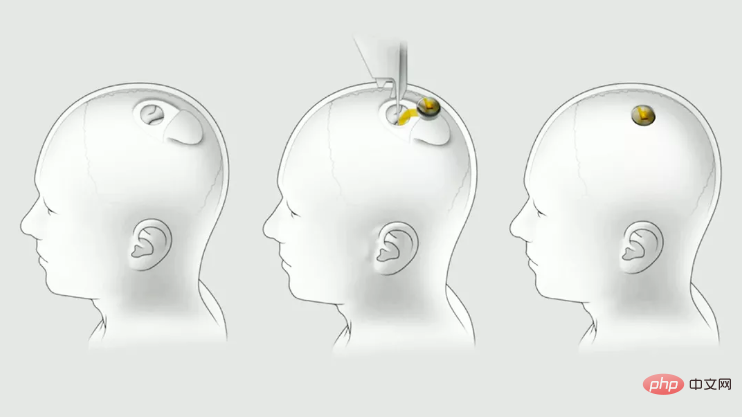Home >Technology peripherals >AI >Musk's air cannon, Neuralink's human trial was rejected a year ago, and there are a lot of safety risks
Musk's air cannon, Neuralink's human trial was rejected a year ago, and there are a lot of safety risks
- WBOYWBOYWBOYWBOYWBOYWBOYWBOYWBOYWBOYWBOYWBOYWBOYWBforward
- 2023-04-12 15:13:101362browse
When it comes to brain-computer interfaces, there is absolutely no way around Neuralink founded by Musk. As early as 2019, Musk claimed that "monkeys can already control computers with only their brains by implanting a brain-computer interface." In August 2020, he demonstrated the implantation of a brain-computer interface device in a pig's brain, and in April 2021, he A brain-computer interface was successfully implanted in a monkey's brain and it demonstrated operations such as playing table tennis video games.
In December 2022, Musk predicted at the Neuralink Show & Tell demonstration event that human trials would begin within the next 6 months. Although Musk's vision is beautiful, the reality is that things don't go that well.
According to a new report from Reuters recently, In early 2022, Neuralink attempted to obtain approval from the U.S. Food and Drug Administration (FDA) for human testing. Tried, but rejected.

In fact, since 2019, Musk has repeatedly set when Neuralink will start operating in the human brain There have been attempts to implant brain-computer interface devices in China, but none of them have come true. But according to Reuters, citing seven current (and former) Neuralink employees, the company only began to request FDA approval for human trials in early 2022 and was rejected.
The FDA identified "dozens of issues" that must be addressed before Neuralink can begin human trials in the United States. Among them, the agency stated that there are a large number of safety risks, including that the wires of the brain-computer chip may move to other areas of the subject's brain, and the chip may overheat and damage cell tissue. There are also concerns about how to remove the implant without damaging the brain.

Neuralink did not respond to a request for comment for this report, nor did it state that the company’s application had been rejected. .
Neuralink has always been controversial due to animal cruelty and other reasons. In December 2022, just days after Musk announced that he would conduct human trials of brain-computer interfaces in the next six months, Neuralink was investigated by the U.S. federal government for alleged animal rights violations. Employees believed the company's animal experiments were rushed and caused unnecessary suffering and death.
In early February this year, according to a report by Reuters, the U.S. Department of Transportation launched an investigation into Neuralink. It stems from claims by animal rights groups that Neuralink removed brain-computer interface chips from test animals without complying with federal regulations and that the shipment of those chips could have spread potential pathogens.
From these already controversial perspectives, the FDA’s rejection of Neuralink human trials seems reasonable. But it is not good news for Musk. After all, human trials are the most important receptors to verify the effectiveness of his brain-computer interface devices. If it continues to be rejected, further implementation and commercial use of subsequent brain-computer interface devices will be out of the question.

#From an industry perspective, brain-computer interface technology, as an emerging, complex, multi-disciplinary communication technology, At this stage, the development is still very imperfect and there are still many problems. Only by properly handling the controversies and risks faced by brain-computer interface companies, such as ethical concerns, protection of receptor rights and interests, and privacy security, can they successfully start the next phase of research.
The above is the detailed content of Musk's air cannon, Neuralink's human trial was rejected a year ago, and there are a lot of safety risks. For more information, please follow other related articles on the PHP Chinese website!
Related articles
See more- Technology trends to watch in 2023
- How Artificial Intelligence is Bringing New Everyday Work to Data Center Teams
- Can artificial intelligence or automation solve the problem of low energy efficiency in buildings?
- OpenAI co-founder interviewed by Huang Renxun: GPT-4's reasoning capabilities have not yet reached expectations
- Microsoft's Bing surpasses Google in search traffic thanks to OpenAI technology

